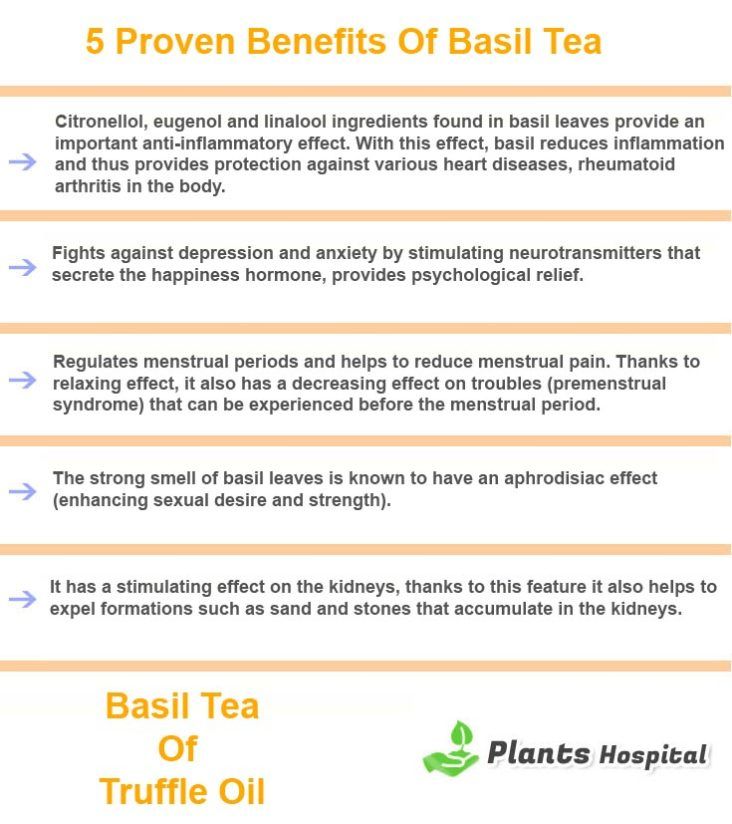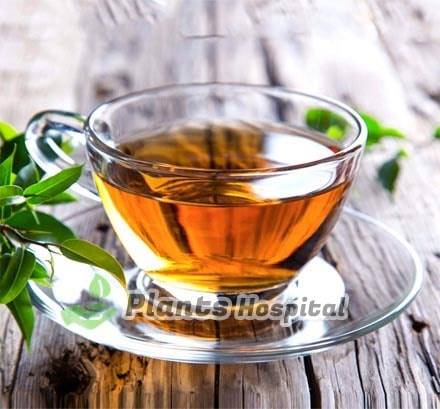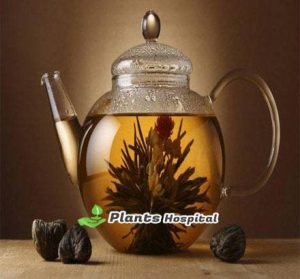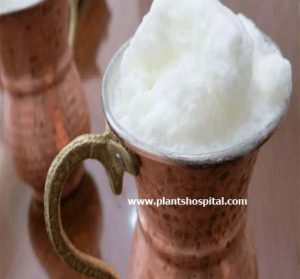The basil tea, which steal our hearts with pleasant smell and decorate our balconies and gardens, has many benefits for our health with healing effects. The basil plant, which can be consumed fresh or dry, is often preferred because of an easy-growing plant.
With basil you will grow in a flowerpot, you can make emit such fragrances to environment in which located, you can add flavor to your meals and sauces, and you can take advantage of medicinal properties by consuming in the form of basil tea.
The homeland of basil, which is considered a relative of mint and thyme plants, is Asian continent. It is a plant that has been produced and consumed in Europe for centuries.

Table of Contents
What is a Basil Tea?
Ocimum basilicum is the Latin name for basil plant, a plant belonging to family Lamiaceae.
Basil tea, a single annual herbaceous plant, has thin and branched roots. Its stems are usually 50-60 cm long and produce small leaves ranging from light green to dark green. The basil plant, planted in spring, can remain green and be used until the end of summer.
Basil tea from India to Italy is a very important and popular spice in many varieties of world cuisine, as well as being used for centuries because of medicinal properties.
Fresh leaves can be consumed by brewing in the form of tea, but also essential oil, extract, tincture and herbal capsules obtained from leaves and seeds can also be recommended for treatment of various diseases.
What Are Varieties Of Basil?
There are 4 different kinds of basil which are registered by the Ministry of Food Agriculture and livestock in Turkey and are often grown in our country. These plants, which are subspecies of the Ocimum basilicum (basil) plant, have similar smells and the same effects as Basil.
Midnight Basil: This type of basil with purple leaves is also known as “Sweet Basil.
Large Sweet Basil: Known as broad-leaved basil. It is preferred for meals.
Moonlight Basil: More whitish, elliptically shaped and has broad leaves.
Compact Basil: It is Basil with tiny leaves.
Basil Tea for Indigestion: Half a teaspoon of anise, half a teaspoon of fennel and a teaspoon of fresh basil leaves, boiled in a cup of boiled water for 8 minutes. After draining, it can be drunk to facilitate digestion on the meal.
Basil Tea for Cough: Two slices of ginger, a piece of cinnamon stick, two to three leaves of sage and a teaspoon of fresh basil, a cup of water for 5 minutes to be closed to mouth. To soften cough and expectorate to drink 2 glasses of drink in the evening.
Basil Tea for Menstrual Pains: A teaspoon of fresh basil leaves, a teaspoon of straw seeds, a piece of hibiscus and a cinnamon stick is mixed, a cup of boiled water on the mouth is closed by adding the brew for 10 minutes. After draining, drink up to two cups. It should be consumed while hot.
What Are The Health Benefits Of Basil Tea?
- Basil with its stomach calming feature makes digestion easier.
- It is effective in removing gas accumulated in the gut and stomach.
- It is diuretic.
- It has a stimulating effect on the kidneys, thanks to this feature it also helps to expel formations such as sand and stones that accumulate in the kidneys.
- It has expectorant and helps to cough.
- Helps to relieve headaches.
- Citronellol, eugenol and linalool ingredients found in basil leaves provide an important anti-inflammatory effect. With this effect, basil reduces inflammation and thus provides protection against various heart diseases, rheumatoid arthritis in the body.
- Fights against depression and anxiety by stimulating neurotransmitters that secrete the happiness hormone, provides psychological relief.
- Has antibacterial properties.
- Supports the liver and helps to remove harmful toxins from the body.
- The strong smell of basil leaves is known to have an aphrodisiac effect (enhancing sexual desire and strength).
- It is stimulant and spasm solvent.
- It has tonic effect to strengthen body.
- Regulates menstrual periods and helps to reduce menstrual pain. Thanks to relaxing effect, it also has a decreasing effect on troubles (premenstrual syndrome) that can be experienced before the menstrual period.
- It helps to reduce plasma cholesterol and eliminate vascular stiffness and related ailments.

How to Brew Basil Tea?
~ When dried basil plant, it loses medicinal qualities and smell. For this reason, basil should be consumed by preparing infused (tea) with fresh leaves.
~ Four cups of boiling water is added on 25-30 grams of fresh basil leaves and brewed with the lid closed for 10-15 minutes. Basil tea can be drunk as two to three cups a day.
Basil Tea Recipes
You can also brew Basil by mixing it with different plants for its intense aromatic smell and medicinal effects.
Other Usage Areas Of Basil?
1. The active ingredients found in basil leaves can be consumed as basil essential oil or basil extract, as it occurs when prepared as tea (infusion).
2. Basil oil has a very strong antibacterial effect has been confirmed by research. It is especially effective in fly and insect bites.
3. Basil tincture can also be used because of antioxidant, anti-inflammatory and antibacterial effects.
4. It is also useful to consume raw basil leaves. For this purpose, it can be added to salads or as a condiment after cooking.
Editor’s Pick:
Side Effects Of Basil Tea
x The effects of basil on blood sugar may vary from person to person. Therefore, people who have chronic diabetes or who are receiving treatment for diabetes should consult their doctor before using basil regularly.
x People with blood pressure problems should be careful when using basil.
x It is recommended not to consume basil within 2 weeks before and after surgery due to effect on blood circulation.
x It is healthy to eat basil during pregnancy and lactation, but is not recommended to consume basil tea or oil during these periods.








